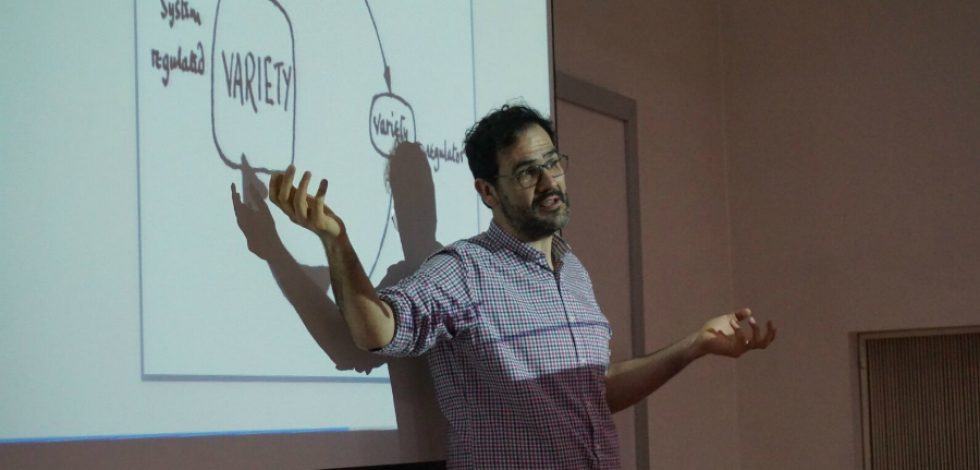
The Public Innovation Lab of the School of Government, GobLab UAI, gave the talk “Challenges and solutions in the implementation of data science in public organizations”, in which the Mexican academic and senior researcher of the Center for Data and Policy Science Public of the University of Chicago, Adolfo de Unánue, shared their experience on data science development within organizations.

Researcher of the University of Chicago gave a talk on data science in public organizations
April 16, 2018
The Public Innovation Lab of the School of Government, GobLab UAI, gave the talk “Challenges and solutions in the implementation of data science in public organizations”, in which the Mexican academic and senior researcher of the Center for Data and Policy Science Publics from the University of Chicago, Adolfo de Unánue, shared their experience on data science development within organizations.
At the beginning of the activity, the dean of the School of Government, Ignacio Briones, assured that the use of data science is a promising path towards the modernization of the State and the implementation of more focused public policies. “What we are looking for, in the GobLab UAI, is to try to introduce ourselves to this issue of data science management with a very concrete application that is to land it in public policy, because we believe that there is a lot of value and growth, in addition to much margin to do things better in the State,” said Briones.
Unánue began by defining data science as a “phenomenological approach to the study of complex adaptive systems (CAS) with the purpose of designing and building data products that support decision making and enable valuable actions in the system in question.” In other words, it explains it as an “operationalized” statistic that acts on the system. As for the role of the data scientist, according to Unánue, his job is to create data products, that is, “a system that continually feels the environment, processes data in information and provides actions or recommendations for action.” In general, Unáue points out, it is a complex system such as the economy, the measurement of poverty and unemployment, the behavior of a debt payment regime and everything related to society.
The expert said that if a system can be compared with itself in different periods, from one month or year to another, for example, that means that the system has not changed and, therefore, does not show progress. “If a statistical model that measures a system changes, it means that things were done well. That adaptability is the way in which data science reacts, generating a product that is changing or adapts to the system. (…) What we are looking for as data scientists is that our predictions work and then stop working,” said Unanue.
Also, the researcher said that if someone wants to control a system, at least they must have the same complexity of the system they want to control, otherwise they will not succeed. For example, bureaucracy is an attempt to complexify a system that aims to control society, which is an even more complex system, and therefore full control is not achieved.
According to the researcher, in order for data science to work, it has to acquire data from the entire organization and not only from a part of it, but that does not always happen. Such is the case of state governments, which are divided into several ministries to try to take control of society. However, data is not shared between ministries, therefore, governments do not obtain data from the entire organization and that is where the implementation of data science fails. “If I want to launch a data science product, I have to guarantee that I can take data from the entire organization and that, consequently, the actions I take will affect the entire organization,” he concluded.



